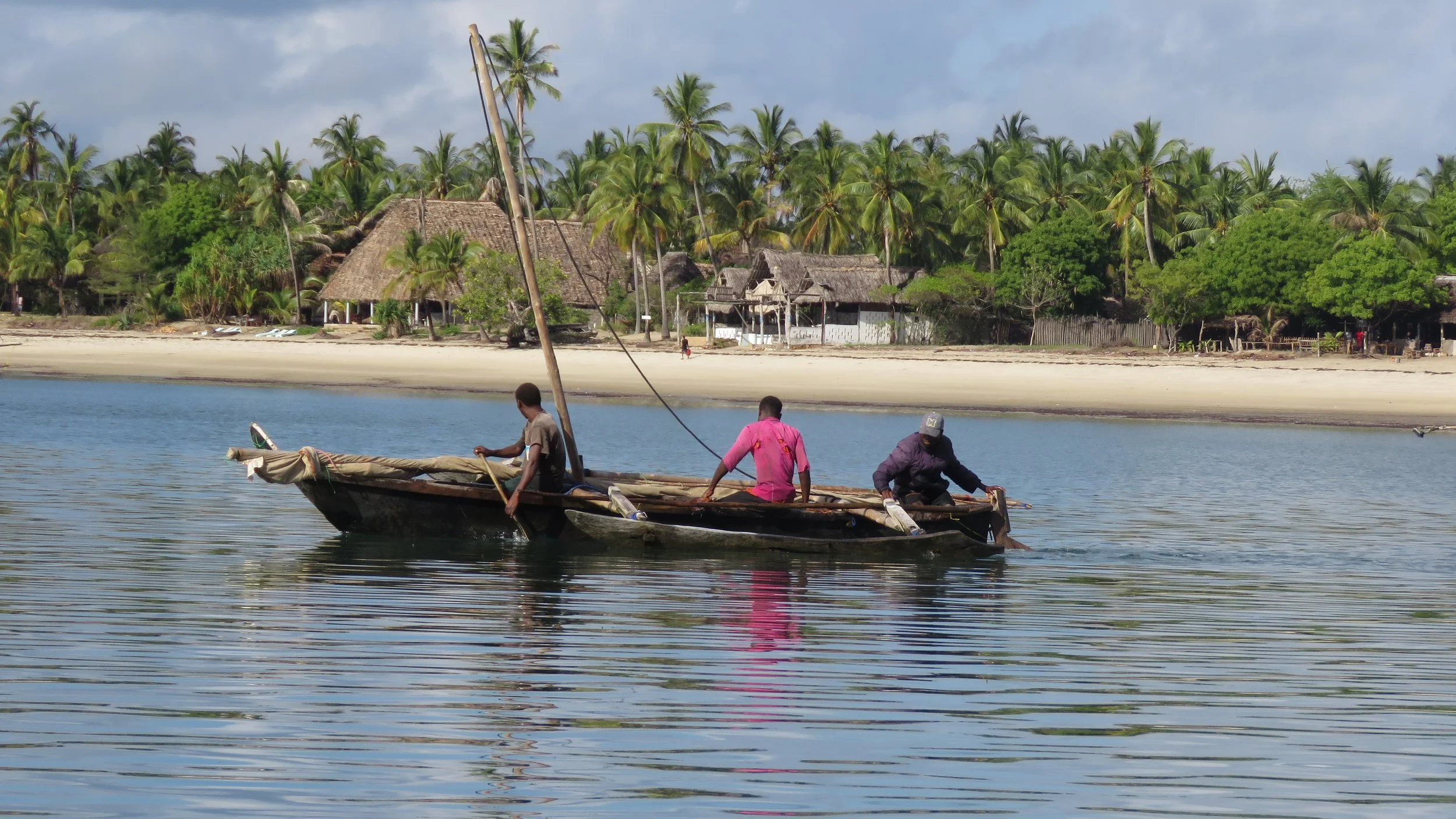An Octopus at a time: Closure of a portion of coral reef in Ushongo Village
The Dorobo Fund supports a marine conservation project working with the coastal village of Ushongo and Marine National Parks and Reserves to protect Maziwe Reserve, a rich biodiverse coral reef 9 km offshore. A patrol team from Ushongo village go daily by boat to the Reserve to prevent illegal fishing and ensure that visitors pay Marine Reserve fees. Dorobo Fund also funds and monitors a turtle nest relocation project. Due to natural erosion, Maziwe is now covered with water during high spring tides, so turtle nests are no longer viable on the sand island. To date, 43,000 turtle hatchlings have been released to the ocean after relocation to a secure site on Ushongo beach.
Fishermen arriving on the morning of the first Octopus reef opening.
These initiatives, although largely successful, are mostly focused on enforcement and protection and we at Dorobo Fund felt that we should try and look for a way to work more with the local community of fishermen/women in Ushongo Village to promote marine conservation that benefits them. Through one of the Dorobo Fund board members, we were introduced to a Marine Conservation NGO called Mwambao who at the time was based in Zanzibar. Mwambao agreed to facilitate work in Ushongo with support from the Dorobo Fund. They facilitated and encouraged Ushongo to close a local section of the reef for Octopus fishing for a 3 month period. When opening it to fishing after even such a short time there is a big increase in numbers and sizes of Octopus. Mwambao has been very successful where they work using this as a tool to get fishing communities to think about conservation while also increasing their income. The first Octopus fishing closure was implemented in Ushongo late last year.
The morning of the first opening of the Octopus reef closure was met with anticipation as around 60 fishers arrived with their small bags of fishing equipment. Each fisher paid a fee of about $1 to the “Beach Management Unit”, the local community-led authority made up of village members. For three days each Octopus fisher brought in their catch to the fish market where the BMU had set up to weigh, measure and sex each Octopus brought in. Each person who brought in Octopus was paid directly each day per kilo of Octopus. It was a big success as over three days the fishers brought over 1000 kilos of Octopus. Due to the closure, the average weight of each Octopus was about double what they normally would have been and they harvested many more than they normally would have in a short time. As one fisher told us, the money he made in these three days was enough to finish paying for the roof on his house.
Local fisherman diving for octopus.
At present Ushongo Village are on their third reef closure for Octopus fishing and have even increased the size of the closure. As overfishing and strain on marine natural resources threaten local reefs, sustainably managing coral reefs has never been more critical to protecting reef biodiversity and coastal communities' food security. Since octopuses' life cycle is short, they mature within a short period. When left undisturbed, they can grow quickly, giving local fishers better returns than if octopus were fished consistently throughout the year. The closure of the reef also offers other species protection, encouraging a much healthier environment for local marine life to thrive.
After seeing the benefits of closing octopus fishing areas and the positive response from the local community in supporting conservation in the future, village leadership representatives are now even considering the permanent closure to all fishing of a part of the local reef in order to increase marine species populations and protect this coastal fishing community's livelihood in the future.









